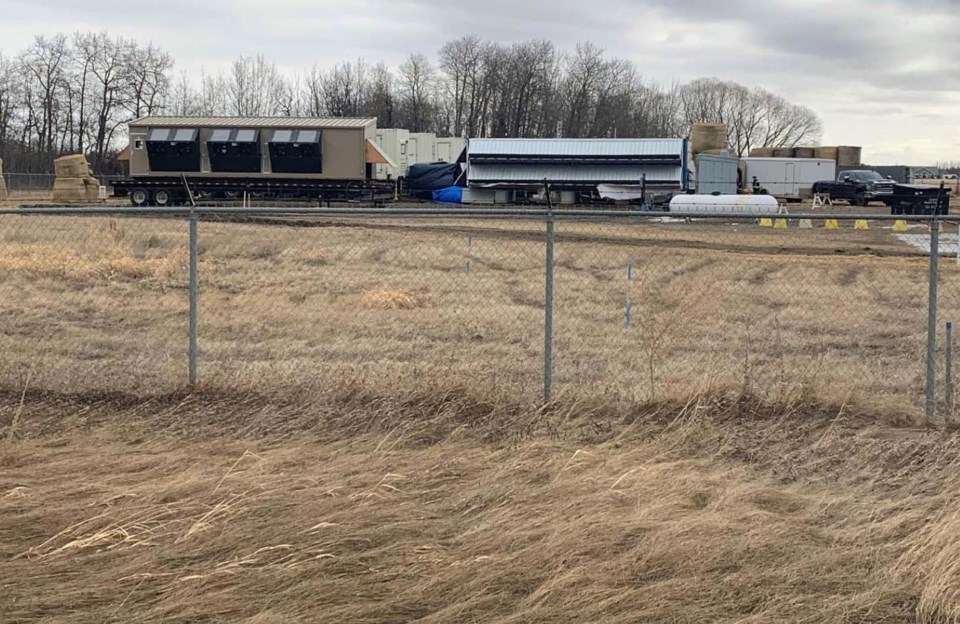WESTLOCK COUNTY – Westlock County considering amendments to a bylaw that would allow larger digital infrastructure projects to operate in industrial zones, following a rise in proposals for high-powered facilities.
Westlock County administration brought the Data Processing Facilities Bylaw back to the table at the regular council meeting on July 8, with a new amendment that would allow larger facilities to set up shop in Westlock.
Julie McLean, the general manager for the planning and community services department at Westlock County, presented councillors with an amendment to the bylaw that passed on April 12, 2022.
A data processing facility is defined as any dedicated space that is used to house computer systems and components for the digital transactions required for processing data. This includes digital currency processing, non-fungible tokens and blockchain transactions.
This new amendment will now have two divisions that the data processing facilities can be separated into based on their electrical usage. Any proposals for larger facilities that use one megawatt or more are deemed Major Facilities, which will only be allowed in industrial land areas, compared to those that use less than one megawatt, noted as Minor Facilities, which will be at the discretion of the development authority.
However, agricultural land can always be rezoned to become industrial land, provided there is enough need for it and people's concerns are addressed.
“Agriculture land can be rezoned to industrial land, but it requires a public hearing process for the opportunity of adjacent land owners to voice concerns and for council to make a decision on the land use whereas a development permit application, like if it’s a discretionary use in the AG District, then the decision is just made by the Municipal Planning Commission,” says McLean.
This comes after McLean reported an increased number of proposals for larger facilities that have come through the Alberta Utilities Commission (AUC). While the exact number is unknown, one facility has received approval from the AUC for their power generation component use but “they don’t have jurisdiction over the actual data processing portion of the use” which falls on the municipality.
One of the biggest impacts data processing facilities have is their noise pollution. They generate a low hum that can be annoying to residents in the surrounding area as well as increased traffic and construction noise. In section 7.21.16, a new addition would give the development authority the ability to request a noise mitigation plan that may include a noise monitoring program to be required.
Back in 2022, the first bylaw was passed after an increase in proposals and applications for Bitcoin mining in the area that led to dozens of questions, concerns and complaints from residents. Westlock was one of the first counties to deal with the influx of bitcoin mining alongside Sturgeon County.
Councillors carried the motion to give the bylaw a first reading and for the administration to schedule a public hearing pertaining to the new amendment. The hearing has been scheduled for Sept. 9 at 9:30 a.m.



